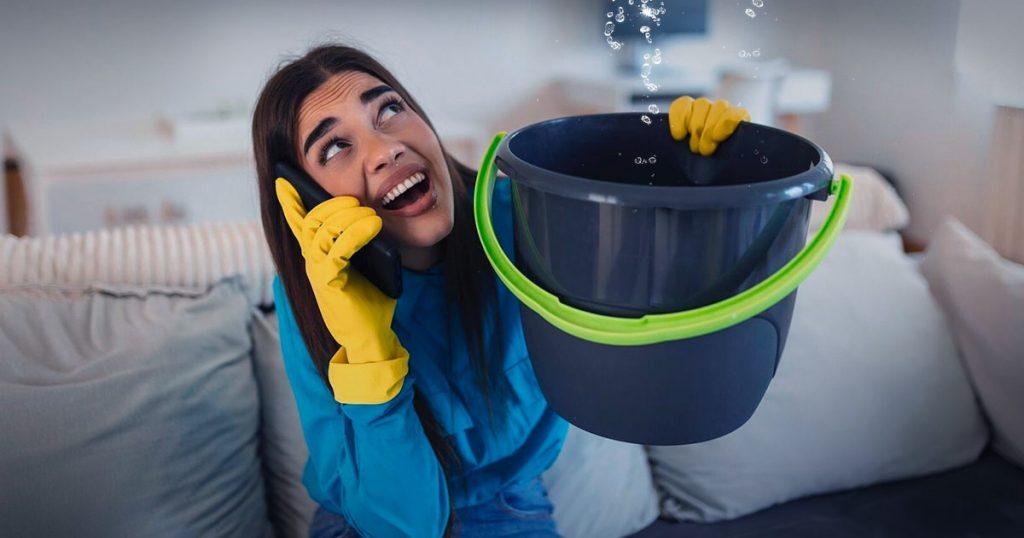Water leaks, particularly those in the ceiling, can be a formidable adversary in our homes. If left unattended, these leaks can cause significant damage, not only to the ceiling but also to the entire structure of the house. Hence, it is paramount to recognize the signs of potential water leaks early on and take immediate action to mitigate their effects.
Signs and Causes of Ceiling Leaks
Ceiling leaks can have serious repercussions if not addressed promptly. They can cause structural damage, leading to weakened ceilings and compromised stability. The presence of excess moisture from leaks creates a breeding ground for mold and mildew, which can cause health issues. Water dripping onto electrical fixtures poses a risk of electrical hazards.
Ceiling leaks also contribute to poor indoor air quality and can damage belongings. Additionally, they can increase energy consumption and attract pests. It is crucial to be proactive in identifying and addressing signs of potential leaks to prevent these repercussions and protect the integrity of your home. These signs include:
Peeling Paint
One of the earliest signs of water leakage is peeling or bubbling paint on your ceiling. This occurs when moisture seeps into the ceiling and disrupts the bond between the paint and the surface.
Water Stains or Rings
These are discolorations on your ceiling that are often yellow, brown, or copper in color. They usually indicate a slow, ongoing leak.
Musty Smells
Strong musty smells in a space can be a clue that there may be concealed water damage because they frequently point to the existence of mildew or mold.
Sagging Ceilings
If water accumulates and saturates the ceiling material, it can cause the ceiling to sag or droop.
Mold Growth
Mold may be a sign of a water leak because it grows best in moist environments. Be sure to check for visible mold spots on your ceiling.
Hairline Cracks
While small cracks in your ceiling may not necessarily mean you have a water leak, they can allow water to seep through, potentially leading to a leak over time.
Knowing the reasons behind ceiling leaks can also aid in quickly identifying and fixing the problem. Plumbing issues, leaks in the roof, condensation accumulation, and even structural problems are some of the frequent causes. Homes can prevent further damage by identifying these causes and taking the necessary action before it gets worse.
Who to Call for Help
Addressing a water leak in the ceiling requires swift action and the right expertise. Depending on the nature of the leak, various professionals may be needed to ensure an effective resolution.
Plumbers
If the source of the leak can be traced back to the plumbing system – perhaps a faulty pipe or a problem with the drainage – your first point of contact should be a licensed plumber. Plumbers are trained to handle such issues and can quickly identify and fix the problematic areas in the piping system.
Roofers
In cases where the leak originates from the roof, perhaps due to damaged shingles or a compromised waterproof layer, a professional roofer should be contacted. In order to stop additional damage and preserve the structural integrity of the house, roofers specialize in identifying and fixing roof leaks.
Water Damage Mitigation and Restoration Experts
For extensive damage that goes beyond a simple leak, it might be necessary to engage the services of water damage mitigation and restoration experts. These professionals have the specialized knowledge and tools to handle severe water damage, including identifying and treating hidden issues such as mold infiltration, which could pose a serious health risk if left untreated.
Other Professionals
Depending on the extent and location of the leak, you might also need to consult with other professionals. For example, if water has come into contact with electrical wiring, electricians might be needed. Structural engineers might be needed if the water leak has caused significant structural damage to the house.
In all cases, it’s essential to ensure that the professionals you hire are licensed and insured to guarantee quality work and protect against further damage or issues. Remember, the goal is not just to stop the leak but also to prevent future leaks and maintain the overall health and safety of your home.
Water Leak in Ceiling: The Importance of Immediate Help
Calling for immediate assistance when dealing with a ceiling leak offers several advantages. First and foremost, experts are able to locate the leak’s source fast and take the appropriate action to prevent it from getting worse. They are qualified to determine the extent of the damage and suggest the best course of action for repairs.
Additionally, getting expert assistance guarantees that the repairs are completed accurately and quickly. DIY fixes may offer temporary relief but may not address the underlying issue, leading to recurring problems in the future. By relying on experienced professionals, homeowners can have peace of mind knowing that the leak is properly repaired, minimizing the risk of further damage and potential costly repairs down the line.
Keep in mind that prompt action and early detection are essential when it comes to ceiling water leaks. By being vigilant, knowing who to call for help, and seeking immediate assistance, homeowners can effectively address ceiling leaks and protect their homes from unnecessary damage.
